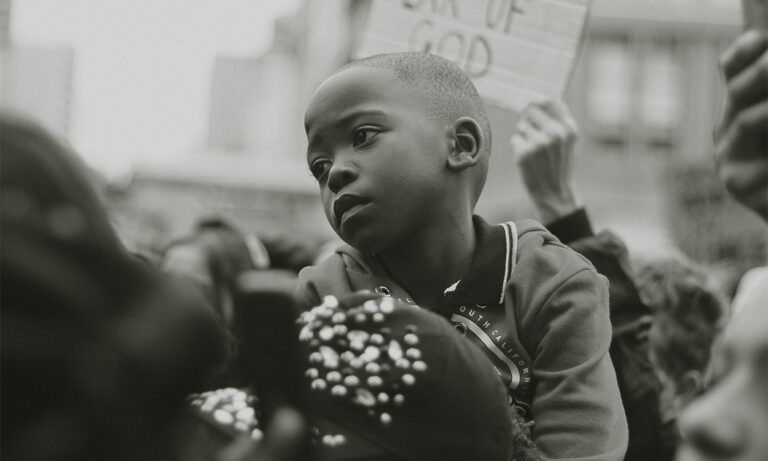Thousands of Black British youth contemplate leaving amid rising racism and extremism
Recent research, coinciding with the beginning of Black History Month in the UK, has unearthed a significant movement among young Black British individuals. According to findings from the Black British Voices Project, which surveyed over 10,000 Black British people between November 2021 and March 2022, nearly half of the young respondents stated that they are contemplating leaving the country. This phenomenon, partly driven by a deepening political divide and the ascent of extremist ideologies, mirrors a growing sense of societal racism.
This ongoing resurgence has had a profound impact on the perspectives of many Black British and African American individuals, who are increasingly considering the possibility of leaving their respective countries to relocate to Africa.
The research, a collaboration between British African-Caribbean newspaper The Voice, Cambridge University, and Black-led consultancy I-Cubed, covered 16 important topics. These topics included how people view their British identity, experiences in education, and workplace interactions.
Among those aged under 25, 45 per cent considered Britain their permanent home, while a significant 39 per cent expressed aspirations to live elsewhere in the future. The remaining respondents either expressed uncertainty or preferred not to disclose their preferences.
When it came to feelings of national pride, 49 per cent of participants indicated that they were either definitely or somewhat proud to be British. However, 45 per cent expressed varying degrees of dissatisfaction with their British identity, while 6 per cent either remained uncertain or chose not to comment.
Lester Holloway, Editor of The Voice, underscored the necessity for a national conversation about this issue in a recent article. The journalist pointed out that, despite many Black Britons being fourth-generation residents of the country, experiences of racism across various facets of life were causing a disconnect between them and their sense of Britishness.
The study also revealed that nearly all Black employees, according to the recent Black British Voices study, have faced the need to “adjust themselves” to fit in at their workplaces. A striking 98 per cent of the 8,558 Black Britons who responded to this question admitted that they had felt pressured to downplay their Black identity to avoid negative reactions from colleagues and superiors. Examples included altering clothing, hairstyles, speech patterns, and social activities such as joining colleagues at the pub after work.
Experts argue that these findings indicate that many workplaces create “unwelcoming atmospheres” for Black employees, potentially leading to adverse effects on their mental well-being
@bktoafrica Its been a week since we left the Uk with our two children to live #offgrid in ghana. 🇬🇭 has been so good to us🙏🏾 All praises to the Most High!
♬ original sound - BTAFARM
Notably, 80 per cent of those surveyed believed that racial discrimination was a significant barrier to academic achievement among young Black people.
While the study primarily focused on Black British individuals, I couldn’t help but think of the emerging trend that parallels the historical theories of influential critical thinkers like William Edward Burghardt Du Bois and Frantz Fanon. Both Du Bois and Fanon delved into the concept of returning to Africa as a way to reestablish ties with their cultural heritage and seek refuge from societal pressures. This sentiment finds resonance in the increasing inclination of individuals from Black British and African American backgrounds to contemplate the idea of relocating to Africa.
Dr. Kenny Monrose, the lead researcher from Cambridge University’s Department of Sociology, stressed the importance of acknowledging the lived experiences of Black communities and the racial disparities they face daily. Dr. Maggie Semple, co-founder of I-Cubed, emphasised the need for impactful, long-term solutions to address these issues: “This report serves as a crucial tool for raising awareness about the pressing need to address the deep-seated historical injustices of racial discrimination across various sectors of public, private, political, and professional domains.”
The concept of Afrocentrism, rooted in the celebration and affirmation of African cultural heritage and identity, has gained prominence in recent years. Many Black Americans and Black Britons are feeling a stronger connection to Afrocentrism as it provides a means of reconnecting with their roots and embracing a more inclusive and fulfilling sense of identity. Afrocentrism emphasises the importance of African history, culture, and traditions in shaping the identities of Black individuals worldwide.
As we reflect on these findings, it raises essential questions about the complexities of identity, dual constituency, the enduring impact of racism, and the pursuit of a more inclusive and equitable society. The increasing interest in relocating to Africa among Black British and African American individuals reflects a longing for a deeper connection with their cultural heritage and a desire to escape the societal challenges they face in their current environments. In the words of Fanon, “Where am I to be classified? Or, if you prefer, tucked away? ‘A Martinican, a native of ‘our’ old colonies.’ Where shall I hide?”






